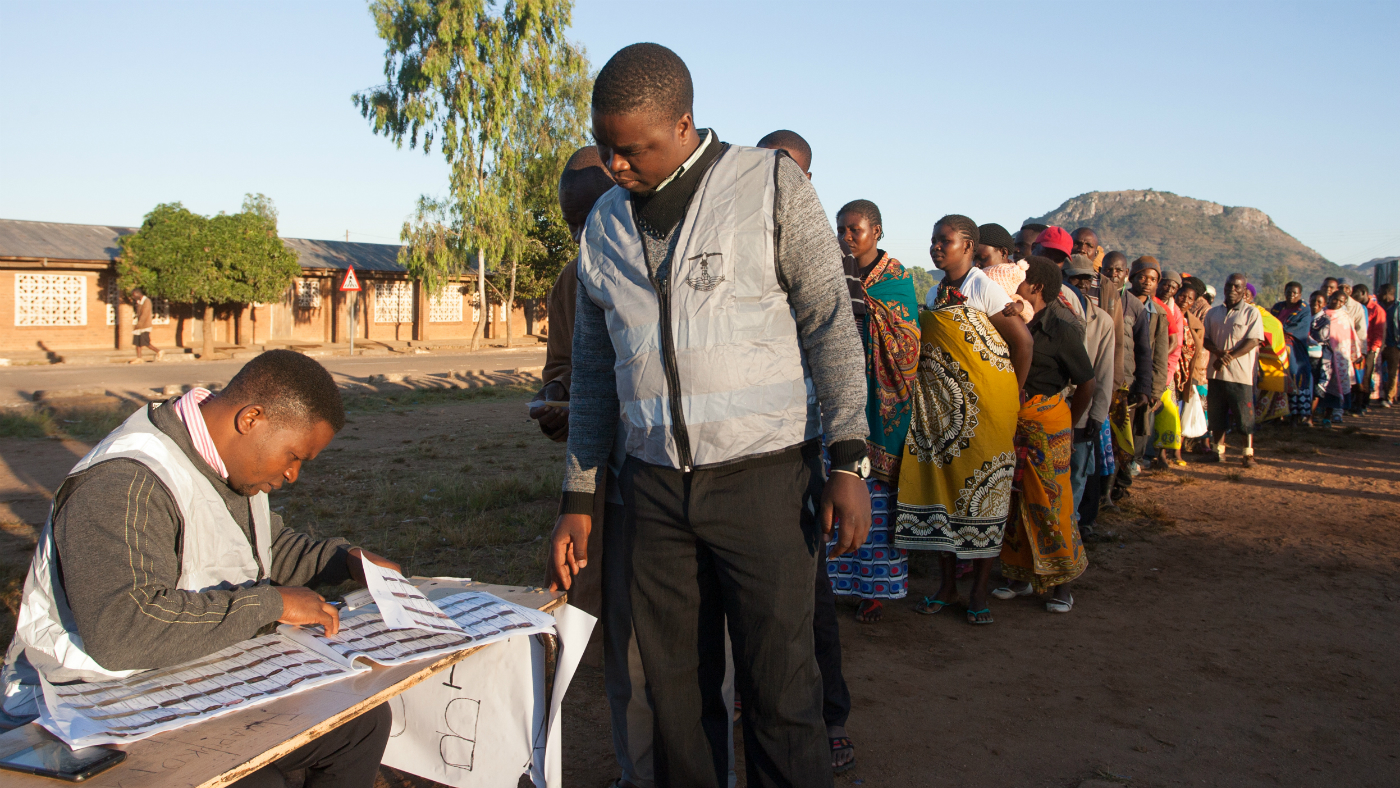Why the Malawi election annulment is a big deal
Judges overturn 2019 election result, citing ‘widespread irregularities’

A free daily email with the biggest news stories of the day – and the best features from TheWeek.com
You are now subscribed
Your newsletter sign-up was successful
Malawi has been plunged into chaos after the country’s Constitutional Court annulled the results of last year’s controversial presidential election.
The southeast African nation has been hit by a wave of violent anti-government protests since President Peter Mutharika was narrowly re-elected in the vote last May.
This week, in what Financial Times describes as “victory for African democracy”, a panel of five top judges found that the election was plagued by “widespread irregularities” and ordered a re-run.
The Week
Escape your echo chamber. Get the facts behind the news, plus analysis from multiple perspectives.

Sign up for The Week's Free Newsletters
From our morning news briefing to a weekly Good News Newsletter, get the best of The Week delivered directly to your inbox.
From our morning news briefing to a weekly Good News Newsletter, get the best of The Week delivered directly to your inbox.
But Mutharika has vowed to contest the court’s decision, triggering fears of further unrest.
What happened?
On 21 May 2019, Malawians went to the polls to elect a president, members of parliament and local government councillors.
The election saw incumbent leader Mutharika of the centrist Democratic Progressive Party (DPP) face off against two main rivals: Lazarus Chakwera of the right-wing Malawi Congress Party (MCP) and former vice-president Saulos Chilima of the newly formed United Transformation Movement (UTM).
A free daily email with the biggest news stories of the day – and the best features from TheWeek.com
Following a hard-fought race, Mutharika - who has been in power since 2014 - was declared the election winner with 38.5% of the vote, followed by Chakwera with 35%, while Chilima trailed behind with 20%.
But just days later, the Malawi Electoral Commission (MEC) announced that it had received 147 reports of “irregularities” in the voting process, including the use of the correctional fluid of the type known as Tipp-Ex on results sheets.
The watchdog failed to propose any action over the claims, however, prompting Chakwera and Chilima to petition the Constitutional Court to force a do-over of the election.
The two opposition leaders’ lawyers alleged that as well as blotting out or altering results with correction fluid, some polling officials sent in the wrong copy of the results sheet to the main tallying centre, the BBC reports.
The court began its investigation in June.
Meanwhile, growing anger over the MEC’s inaction prompted widespread anti-government protests, which have “resulted in looting and the destruction of property, including government offices”, the broadcaster says. Two people - a police officer and a civilian - are known to have been killed during the demonstrations.
What happened this week?
In a unanimous ruling on Tuesday, the judges hearing the case said that “the irregularities and anomalies have been so widespread, systematic and grave... that the integrity of the results has been seriously compromised”.
The court said that it had been possible to verify only 23% of the result sheets, and that the election outcome “cannot be trusted as a true reflection of the will of the voters”.
As a result of their findings, the judges formally annulled the vote and ordered that a new election be held within 151 days.
According to Al Jazeera, the trial marks the first time that a presidential election has been challenged on legal grounds in Malawi since independence from Britain in 1964.
And the annulment verdict marks only the second time in African history that a vote result has been cancelled, after the 2017 Kenyan presidential election.
The Malawi judges did not make any mention as to who may have perpetrated the vote rigging, but did direct the country’s parliament to consider recalling the current electoral commission in order to “ensure smooth conduct of fresh elections”, reports CNBC Africa.
And the reaction?
Speaking to supporters after the court delivered its ruling, MCP leader Chakwera said: “This is a landmark decision for Africa, for Malawi, for democracy and we would want to see that everyone respects that.”
The decision has also been praised by international observers, with the Southern African Development Community (SADC) congratulating the court for “upholding the Malawian Constitution”.
The BBC’s Africa correspondent Andrew Harding says the ruling may have a lasting impact across Malawi and the wider international community.
The judges “could easily have played this one safe”, but instead “seized this opportunity not only to shake up their country's political and electoral infrastructure but to send a message of judicial strength and independence to other African countries still wrestling with the shift from one-party rule to true multi-party democracy”, Harding writes.
However, the Malawi court battle may not be over. Mutharika’s team announced on Wednesday that he will appeal the decision in the country’s Supreme Court, which has the power to overturn the ruling, according to Reuters.
Presidential spokesperson Mgeme Kalirani described the annulment ruling as a “great miscarriage of justice” that “cannot be allowed to stand”.